Dagstuhl-Seminar 25091
Tradeoffs in Reactive Systems Design
( 23. Feb – 28. Feb, 2025 )
Permalink
Organisatoren
- Jerónimo Castrillón-Mazo (TU Dresden, DE)
- Chadlia Jerad (University of Manouba, TN)
- Edward A. Lee (University of California - Berkeley, US)
- Claire Pagetti (ONERA - Toulouse, FR)
Kontakt
- Marsha Kleinbauer (für wissenschaftliche Fragen)
- Susanne Bach-Bernhard (für administrative Fragen)
Dagstuhl Reports
As part of the mandatory documentation, participants are asked to submit their talk abstracts, working group results, etc. for publication in our series Dagstuhl Reports via the Dagstuhl Reports Submission System.
- Upload (Use personal credentials as created in DOOR to log in)
Dagstuhl Seminar Wiki
- Dagstuhl Seminar Wiki (Use personal credentials as created in DOOR to log in)
Gemeinsame Dokumente
- Dagstuhl Materials Page (Use personal credentials as created in DOOR to log in)
Reactive systems are software systems that engage in a continual dialogue with their environment. They constitute the software parts of cyber-physical systems where timely reactions are often critical to safety. Applications include autonomous vehicles, electric power systems, industrial automation, healthcare electronics, and robotics. Because the software engages in a continual dialog with its environment, it often has conflicting requirements. It needs to be predictable, but robust to unpredictable events; it needs to react in a timely manner, but this often requires reacting with inconsistent information; it needs to be adaptable, but demonstrably safe; and it needs to be secure, but accessible and available. Many conferences and workshops focus on one of the goals, such as achieving real-time behavior, without explicitly acknowledging the costs and without providing sound strategies for dealing with failures that prevent reaching the goals. The focus of this seminar will be on the tradeoffs that are intrinsic in the design of such systems. When you make a system predictable, available, secure, or even demonstrably safe, what have you lost? This Dagstuhl Seminar will pull in experts from manifold disciplines to identify and discuss the fundamental limits in reactive systems design that make tradeoffs inevitable.
 Jerónimo Castrillón-Mazo, Chadlia Jerad, Edward A. Lee, Marten Lohstroh, Christian Menard, and Claire Pagetti
Jerónimo Castrillón-Mazo, Chadlia Jerad, Edward A. Lee, Marten Lohstroh, Christian Menard, and Claire Pagetti
Please log in to DOOR to see more details.
- Andres Barrilado (NXP Semiconductors - Toulouse, FR)
- Grzegorz Bazydlo (University of Zielona Gora, PL)
- Frédéric Boniol (ONERA - Toulouse, FR) [dblp]
- Hasna Bouraoui (TU Dresden, DE)
- Thomas Carle (Toulouse University, FR)
- Jerónimo Castrillón-Mazo (TU Dresden, DE) [dblp]
- Samarjit Chakraborty (University of North Carolina at Chapel Hill, US) [dblp]
- Anupam Chattopadhyay (Nanyang TU - Singapore, SG) [dblp]
- Arthur Clavière (Collins Aerospace - Blagnac, FR)
- Marc Geilen (TU Eindhoven, NL)
- Alain Girault (INRIA - Grenoble, FR) [dblp]
- Andrés Goens Jokisch (University of Amsterdam, NL)
- Arpan Gujarati (University of British Columbia - Vancouver, CA) [dblp]
- Jérôme Hugues (Carnegie Mellon University - Pittsburgh, US) [dblp]
- Victor Jegu (Airbus S.A.S. - Toulouse, FR) [dblp]
- Erling Rennemo Jellum (University of California - Berkeley, US)
- Chadlia Jerad (University of Manouba, TN) [dblp]
- Einar Broch Johnsen (University of Oslo, NO) [dblp]
- Hokeun Kim (Arizona State University - Tempe, US)
- Edward A. Lee (University of California - Berkeley, US) [dblp]
- Shaokai Jerry Lin (University of California - Berkeley, US)
- Claire Pagetti (ONERA - Toulouse, FR) [dblp]
- Jan Reineke (Universität des Saarlandes - Saarbrücken, DE) [dblp]
- Marcus Rossel (Barkhausen Institut - Dresden, DE)
- Selma Saidi (TU Braunschweig, DE) [dblp]
- Klaus Schneider (RPTU Kaiserslautern-Landau, DE) [dblp]
- Martin Schoeberl (Technical University of Denmark - Lyngby, DK) [dblp]
- Alexander Schulz-Rosengarten (Universität Kiel, DE)
- Katharina Sedow (Saneon GmbH - Ismaning, DE)
- Manuel Serrano (INRIA - Sophia Antipolis, FR) [dblp]
- Marjan Sirjani (Mälardalen University - Västerås, SE) [dblp]
- Jonathan Sprinkle (Vanderbilt University - Nashville, US) [dblp]
- Eric Tutu Tchao (Kwame Nkrumah University of Science and Technology, GH)
- Lothar Thiele (ETH Zürich, CH) [dblp]
- Reinhard von Hanxleden (Universität Kiel, DE) [dblp]
- Eugene Yip (GLIWA GmbH & Co. KG, DE) [dblp]
Klassifikation
- Distributed / Parallel / and Cluster Computing
- Programming Languages
- Systems and Control
Schlagworte
- Reactive systems
- Time-centric software
- Distributed systems
- Concurrent Programming Models
- Cyber-Physical Systems

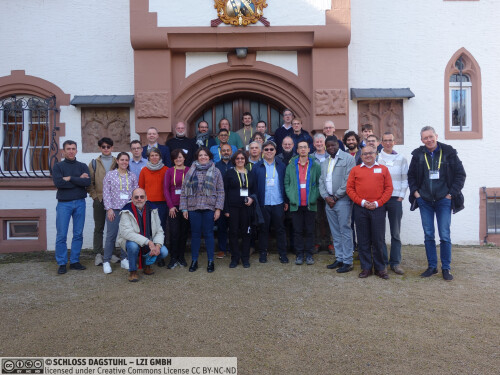
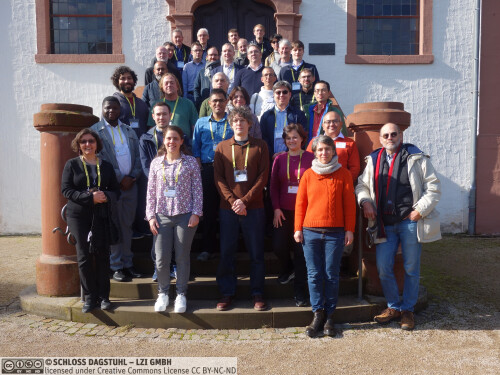
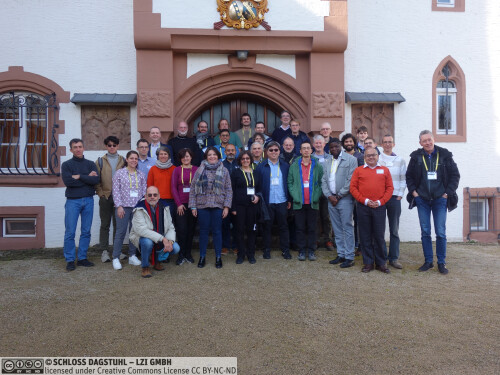
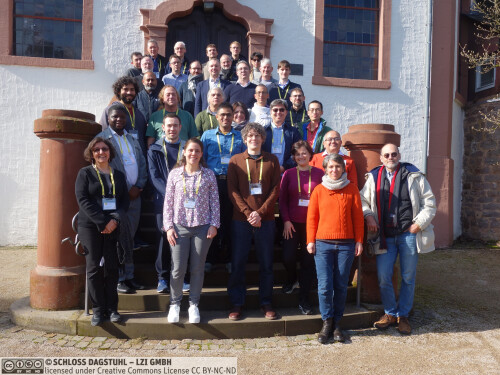
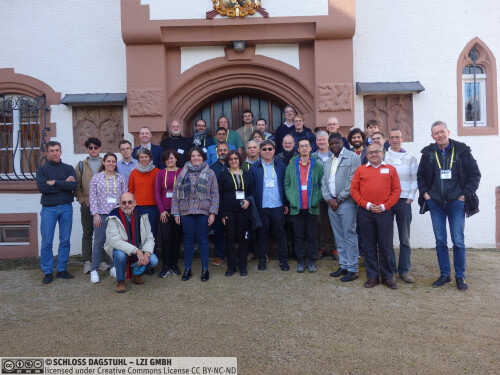
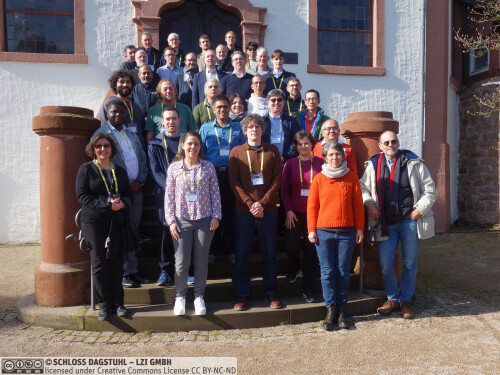
 Creative Commons BY 4.0
Creative Commons BY 4.0
